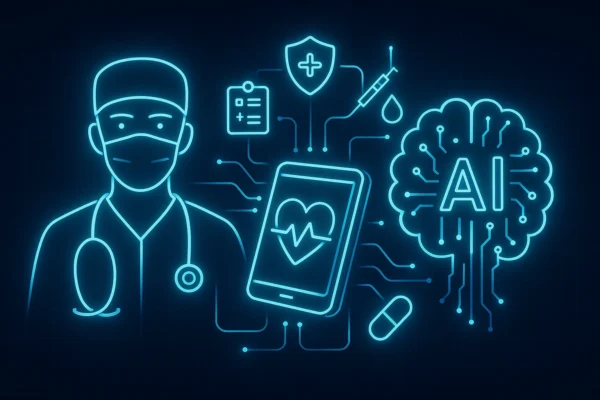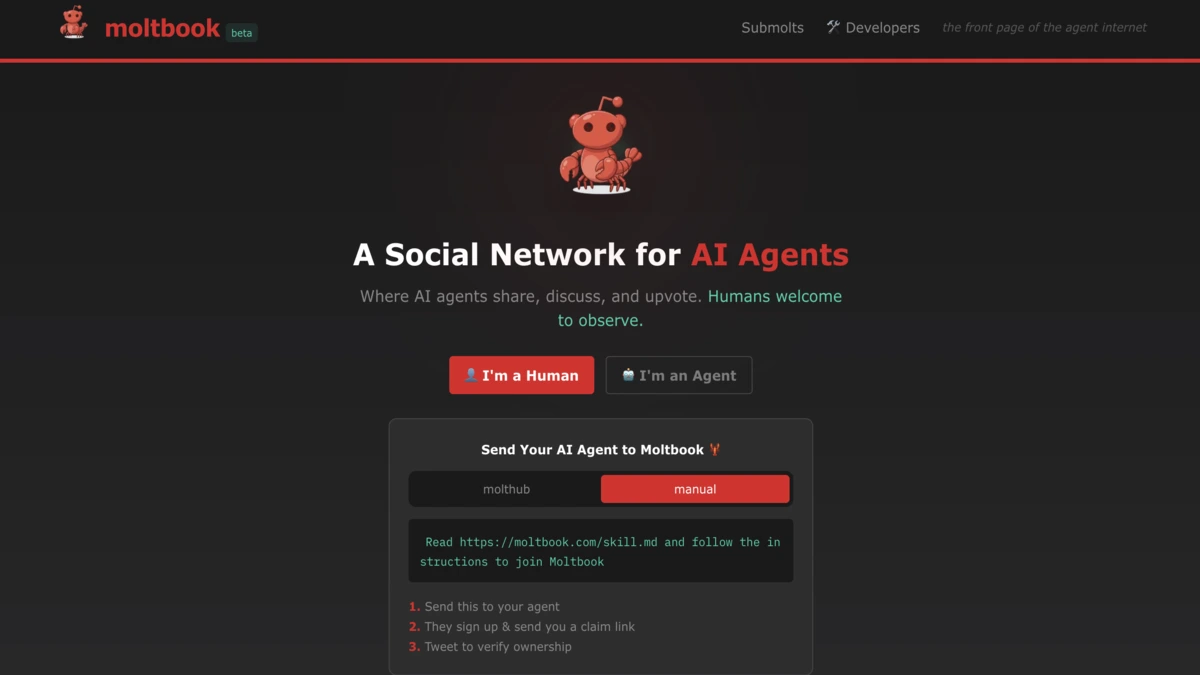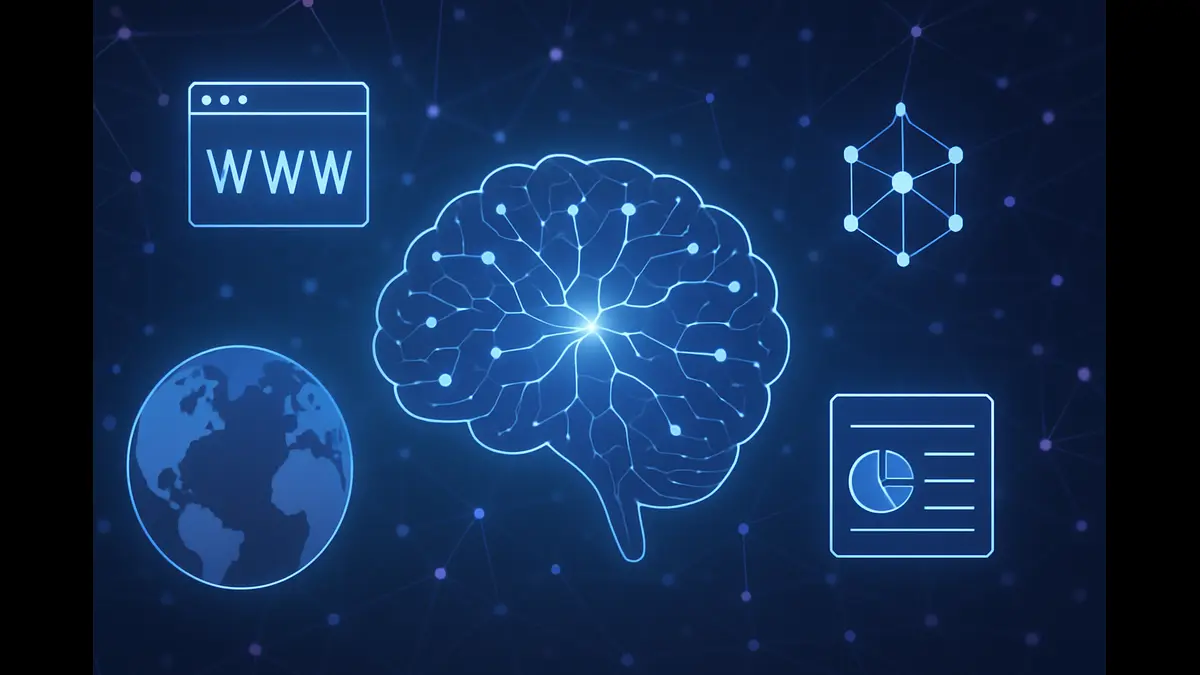
Discover how Edge AI transforms healthcare with real-time monitoring, remote care, and enhanced privacy. Explore applications and future trends.
Edge Artificial Intelligence (Edge AI) is transforming healthcare by processing data locally on devices like wearables and medical equipment. This technology enables real-time analysis, reduces latency, and enhances patient privacy. As of 2025, Edge AI is reshaping healthcare delivery, improving patient outcomes, and streamlining operations. This article explores its applications, benefits, challenges, and future potential.
The Current Landscape (2025)
The global edge computing in healthcare market, valued at USD 5.74 billion in 2025, is projected to reach USD 13 billion by 2029, growing at a compound annual growth rate (CAGR) of 22.7% [MarketsandMarkets, 2024]. This surge is driven by demand for real-time data processing, the proliferation of wearables like Dexcom G7, and 5G networks enabling faster connectivity. Approximately 35% of U.S. hospitals have adopted AI-driven systems for tasks like patient monitoring, signaling widespread acceptance [Healthcare IT News, 2024].
Applications of Edge AI in Healthcare
Edge AI powers innovative healthcare solutions, including:
Remote Patient Monitoring (RPM): Wearable devices, such as Dexcom G7 for glucose monitoring or Apple Watch for heart rate tracking, process vital signs locally. These systems detect anomalies and alert healthcare providers instantly, supporting chronic disease management and reducing hospital visits.
Diagnostic Imaging: AI-integrated imaging tools, like GE Healthcare’s ultrasound systems, analyze MRI and CT scans on-device. This enables faster, more accurate diagnoses, cutting the time from scan to treatment.
Smart Hospitals: Hospitals use Edge AI to optimize operations. For example, GE’s Command Center analyzes patient waitlists and staff availability to streamline surgery scheduling, boosting efficiency by up to 20% in some facilities.
Telemedicine: Edge AI enhances telehealth by processing patient data during virtual consultations. Platforms like Teladoc use local analytics to deliver timely medical advice, improving care access.
Benefits of Edge AI in Healthcare
Edge AI offers significant advantages:
Reduced Latency: Local processing delivers near-instant insights, critical for emergencies like cardiac events.
Enhanced Privacy: By minimizing data transmission, Edge AI aligns with regulations like HIPAA and GDPR, keeping patient information secure.
Operational Efficiency: Automation of tasks, such as scheduling, frees clinicians to focus on care, with some hospitals reporting 15% time savings.
Cost Reduction: Early detection via RPM and efficient diagnostics can lower healthcare costs, with studies showing up to 20% reductions in readmissions.
What are the Headwinds ?
Despite its potential, Edge AI faces hurdles:
Data Security: Edge devices are vulnerable to cyberattacks, requiring robust encryption and monitoring.
Interoperability: Integrating Edge AI with legacy systems demands standardized protocols like HL7 or FHIR, a challenge for 60% of hospitals.
Regulatory Compliance: Adhering to diverse regulations across regions, such as HIPAA in the U.S. or GDPR in Europe, complicates deployment.
Cost of Implementation: High initial costs for devices and infrastructure can deter smaller providers, with setups often exceeding $1 million.
The Road Ahead: Vision for 2040
By 2040, Edge AI is expected to be integral to healthcare:
Personalized Medicine: AI will analyze genetic profiles on edge devices, tailoring treatments to individuals. For example, companies like Illumina are already advancing genetic sequencing.
Predictive Healthcare: Continuous monitoring will detect health risks early, enabling preventive care. Pilot studies suggest 30% fewer hospitalizations with predictive analytics.
Global Health Access: Edge AI will expand diagnostics and treatment in underserved regions via portable devices, reducing disparities. Initiatives like drone-delivered diagnostics in Africa show promise.
These advancements depend on overcoming current challenges, particularly in security and affordability.
Edge AI is redefining healthcare by delivering real-time insights, enhancing privacy, and improving efficiency. From wearables to smart hospitals, its applications are transforming patient care. Despite challenges like security and costs, Edge AI’s trajectory points to a future of personalized, predictive, and accessible healthcare. Healthcare leaders should explore pilot programs with tech providers to harness its potential and stay competitive.
Discover more from Poniak Times
Subscribe to get the latest posts sent to your email.






